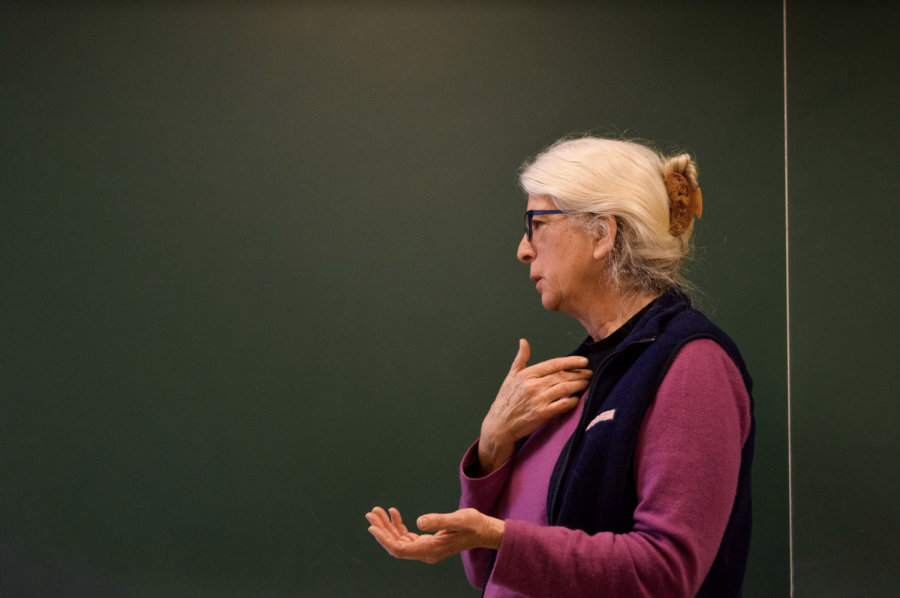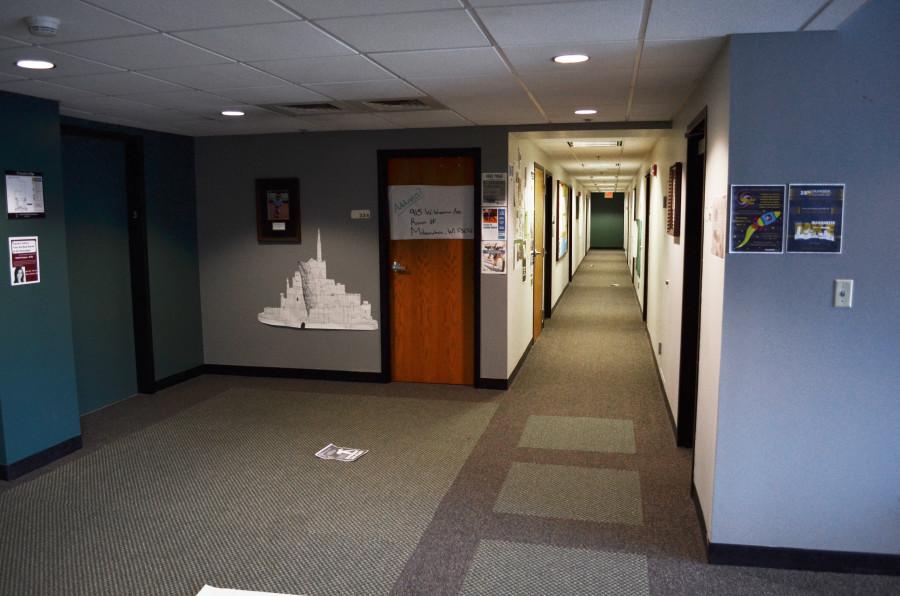
To extend the legacy of Dorothy Day on Marquette’s campus, the Raynor Library Archives is sponsoring an exhibit designed to coincide with the 80th anniversary of the first publication of the Catholic Worker, the newspaper Day helped found.
The exhibit also celebrates the Catholic Worker Movement begun by Day and a French peasant philosopher Peter Maurin.
Day, a controversial figure in Catholic Church history, is best known for her work in New York with the Catholic Worker Movement, which focused on non-violence and hospitality to the poor. Pope John Paul II gave the Archdiocese of New York permission in 2000 to open the cause for her canonization in the Church, which allows her to be called a “Servant of God” by Catholics.
The Dorothy Day Exhibit was inspired by a documentary entitled “Dorothy Day: Don’t Call Me a Saint,” which was written, produced and directed by Claudia Larson. Larson, who also conceived and designed the exhibit, worked on the documentary for 15 years before its world premiere at New York’s Tribeca Film Festival in 2006.
“I often say that it’s as though Dorothy Day walked up my front steps, knocked on my door, I answered,” said Larson. “She’s been here pushin’ ‘n proddin’ me for over 22 years.”
Larson has been interested in Day her whole life, but was especially inspired by stories about Day at the Movement’s 60th anniversary celebration in New York in 1993, which was an opportunity to meet some of Day’s oldest friends from the Catholic Worker. There, she spent time with Phil Runkel, an archivist in Raynor Memorial Library who is responsible for the Catholic social action holdings at Marquette. She also said she is working on a book based on transcripts from her interviews about Day.
“It is a rare privilege to have this collection of documents at Marquette because they present a significant contribution to and perspective on the history of the Catholic Church in the United States,” said Susan Mountin, the director of Manresa for Faculty in the Center for Teaching and Learning and an adjunct assistant professor in the theology department.
The exhibit features many documents from Raynor Memorial Library’s archives as well as some of Day’s personal items. It is designed to give the Marquette community a chance to explore details about Day’s life and experiences, and to see the impact of the Catholic Worker.
“This exhibit is a great visual kick-start to further study of Dorothy Day,” Larson said.
Marquette also hosts a student program for sophomores called the Dorothy Day Social Justice Living Learning Community. Students participating in the program live on two floors of Straz Tower and do many things together such as take a class each semester (Philosophy 1001 and Philosophy 2310), a pair of retreats, and service learning.
Maddie Chouanard, a junior in the College of Arts & Sciences, was in the program last semester and is an RA on the Dorothy Day floor. She said that being in the community forced her to re-evaluate her plans.
“It changed my perspective,” Chouanard said. “(The program) has become a large part of my life now.”
Chouanard said service learning allows the students to connect with the community. The students attend the same sites throughout the year.
Day, who underwent a major transformation during her conversion to Catholicism, is known for pushing for major reforms in the Church.
“Dorothy Day was inspired by the Gospel stories about Jesus and looked to what he said and did as the guide to her life,” Mountin said. “She had an incredibly deep love of the Catholic Church, but from that love she also critiqued the institution when it did not live up to the standards of Jesus.”
The exhibit will be on display through at least the end of the semester.
“The ease in which the exhibit is laid out makes for a casual, but profound, learning tool,” Larson said.









